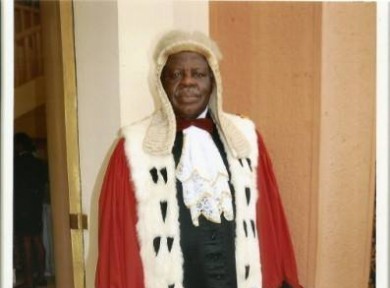Over sixteen years ago, Ayah as the head of the Meme High Court pronounced, inter alia, two judgments on the applicability of two international instruments in Cameroon. He held that Cameroon was constitutionally a bilingual country with a constitutional provision that, if an international instrument conflicted with the constitution, the ratification of the instrument had to be stayed until the constitution had been amended, aligning it with the international instruments. Ayah opined strongly that that meant that the ratification of the CIMA Code and the OHADA treaty was unconstitutional, and therefore inapplicable in Cameroon. The conflict was on the ground that the two instruments had provided that French was the sole language for the purpose of the instruments…
E Curiously, even some “judge” ruled at the Court of Appeal that Ayah’s judgment was “illegal” – whatever that meant. As for Anglophone lawyers, Ayah’s judgment was a nonevent. Some funny ones even sarcastically referred to Ayah’s stance as cynical.
It makes a good laugh today that lawyers are going on strike on the sole ground that the OHADA treaty has not been translated into English. The same lawyers who had treated Ayah’s reasoning with jest have failed just again to apply their minds to the fundamental issue: whether the OHADA treaty is applicable in Cameroon?
The constitution is unambiguous that, should there be a conflict between an international instrument and the constitution, the ratification of that instrument shall be stayed until the constitution has been amended, removing the mischief. At the time the treaty in issue was ratified, there was a colossal conflict – the treaty being monolingual whereas Cameroon was bilingual as per the constitution. No-one needs to be a lawyer to draw the inference that the ratification was unconstitutional and by that dint null and void. It goes without saying that the OHADA treaty and all the relevant instruments are not part of the body of Cameroonian laws.
One is not unaware that, since Ayah’s judgment, the OHAD laws have been amended with a dramatic departure from French as the sole language to the adoption of five languages, including English. But that falls short of curing the unconstitutionality of the previous ratification by Cameroon. In effect, therefore, OHADA has not been ratified by Cameroun up to the moment of writing these words.
It seems facetious to demand the translation of OHAD without more if the intention is for the enforcement of those laws by Cameroonian courts. If they are serious, the Anglophone lawyers should start from the fundamentals: demanding that parliament ratifies the OHADA laws! Except the contention is that the laws should be translated into English to enable the Anglophone members of parliament to understand the import of what they will be called upon to ratify!
Otherwise, it is putting the card before the horse!
By Ayah Paul Abine
Cameroun Supreme Court Advocate General





